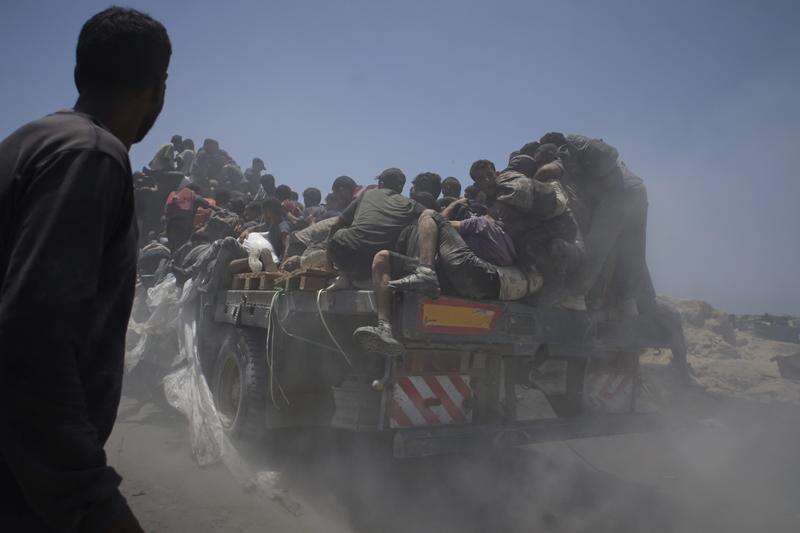
UPDATE: The humanitarian crisis in Gaza deepens as hundreds of truckloads of aid remain stalled at the border, with reports of rising famine among Palestinians. As of Thursday, Israel’s military confirmed there are 4,500 aid trucks waiting at the Kerem Shalom crossing for distribution by the United Nations.
Urgent reports from Gaza indicate that the situation is dire, with the Gaza Health Ministry confirming at least 79 Palestinians have died this week due to malnutrition-related causes. Humanitarian agencies are raising alarms as conditions worsen, yet Israel insists it is facilitating enough aid to meet needs.
The U.N. faces significant challenges in delivering the aid, hampered by strict military regulations and dangerous conditions. Access to essential supplies is fraught with peril, as U.N. trucks must navigate through military-controlled zones, often facing hostile crowds. According to Olga Cherevko, spokesperson for the U.N. Office for the Coordination of Humanitarian Affairs, “These factors have put people and humanitarian staff at grave risk.”
Reports indicate that the aid delivery route can take upwards of 20 hours, with trucks overwhelmed by desperate crowds and criminal gangs. Witnesses claim that Israeli troops have opened fire on individuals attempting to seize supplies, leading to further casualties. “Taken together, these factors have forced aid agencies to pause the collection of cargo from crossings controlled by Israeli authorities,” Cherevko stated.
U.N. officials have criticized Israeli military restrictions, which they say impede over half of their movement requests. In May, June, and July, 506 out of 894 requests were denied or obstructed. The delays create significant logistical issues, wasting precious time and resources as convoys wait for clearance.
Israel, however, maintains that it imposes no limits on the number of aid trucks entering Gaza. Col. Abdullah Halaby, an official in charge of aid transfers, stated, “We encourage our friends in the international community to collect and distribute humanitarian aid to the people of Gaza.” He claims routes are assessed weekly to ensure safe passage for aid.
Despite these claims, U.N. agencies argue that allowing a sufficient volume of aid daily is crucial. “The best protection for us is community buy-in,” said U.N. spokesperson Stephane Dujarric. “Communities must understand that trucks will come every day, that food will come every day.”
As the conflict continues, the humanitarian situation in Gaza remains critical. The U.N. warns that without immediate and sustained aid, the risk of famine will escalate, impacting countless lives.
The world watches as efforts to resolve this impasse continue, with humanitarian agencies urging coordinated action to save lives. What happens next is crucial, as the need for effective and safe delivery of aid has never been more urgent.
Stay tuned for more updates as this situation develops.





